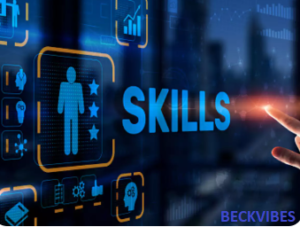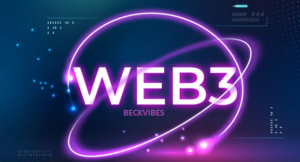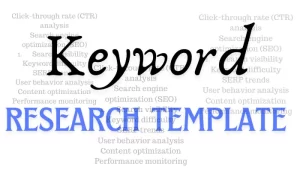
Artificial Intelligence in African Education is Adaptive learning in education refers to a teaching style that leverages technology to adapt the learning experience for each student. It adapts the presentation of instructional material based on the particular student’s abilities, limitations, preferences, and pace of learning.
This approach often involves algorithms that analyze student performance data to provide customized learning paths, content, and feedback, ultimately enhancing engagement and improving learning outcomes in adaptive learning in education. This refers to integrating artificial intelligence (AI) technologies into adaptive learning systems.
These Artificial Intelligence in African Education systems leverage algorithms and machine learning approaches to examine huge data regarding students’ learning behaviors, performance, and preferences. By digesting this data, AI can dynamically change the material, pace, and teaching tactics to match the individual needs of each learner. AI in adaptive learning can also provide real-time feedback to both students and teachers, enabling more effective teaching and learning experiences. Overall, AI promotes the adaptability and customization of instructional materials, leading to greater student engagement and outcomes.
AI in Efficient Assessment in Education
Efficient assessment in education entails the use of numerous tactics and instruments to obtain information on students’ learning progress and accomplishment in a timely and efficient manner. Some crucial components of efficient assessment include:
1. Clear Learning Objectives:
Clearly, stated learning objectives assist guide the assessment process by outlining what students should know and be able to do.
2. Multiple Assessment Methods:
Utilizing a range of assessment methods, including quizzes, examinations, projects, presentations, and discussions, helps educators to acquire comprehensive information about students’ knowledge, skills, and understanding.
3. Formative Assessment:
Regular formative assessment gives continual feedback to both students and teachers, allowing for adjustments to instruction and learning activities to address areas of misunderstanding or weakness.
4. Timely Feedback:
Providing fast feedback to students enables them to recognize their strengths and areas for improvement, encouraging a more iterative learning process.
5. Technology Integration:
Leveraging educational technology tools for assessment, such as online quizzes, learning management systems, and data analytics platforms, can streamline the assessment process and provide useful insights into student performance.
6. Authentic Assessment:
Incorporating real-world tasks and scenarios into tests helps make the assessment process more meaningful and relevant to students’ lives.
7. Rubrics and Criteria:
Clearly defined rubrics and evaluation criteria assist assure consistency and fairness in evaluating student work while offering transparency about expectations. By using these tactics, educators can optimize the assessment process to promote student learning and growth effectively efficient assessment in education refers to the application of artificial intelligence technology to expedite and enhance the assessment process.
Here are some ways AI can be applied:
1. Automated Grading:
AI-powered systems can automate the grading of assignments, quizzes, and examinations, decreasing the time and effort required by instructors. These technologies can assess student replies and provide quick feedback.
2. Data Analysis:
AI systems can analyze enormous databases of student performance data to uncover patterns, trends, and areas for improvement. This data-driven method lets instructors make educated decisions about teaching tactics and interventions.
3. Adaptive Testing:
AI can personalize tests by adjusting the difficulty level of questions based on students’ responses. This guarantees that each student is pushed at an appropriate level and provides a more accurate estimate of their knowledge and skills.
4. Natural Language Processing (NLP):
NLP algorithms can be used to assess written responses, essays, and other open-ended assignments. AI can assess the quality of writing, identify essential topics, and provide input on grammar and organization.
5. Learning Analytics:
AI-powered learning analytics solutions can track student engagement, participation, and progress in real time. This data can help educators identify pupils who may be struggling and intervene proactively.
AI In data analysis in education
Artificial Intelligence in African Education, Data analysis in education comprises the systematic investigation and evaluation of educational data to acquire insights into student performance, instructional efficacy, and overall educational results. Here are some essential components of data analysis in education:
1. Student Performance: Educational data analysis entails examining student assessment results, such as standardized test scores, grades, and classroom assessments, to determine individual and group-level performance trends.
2. Identifying Trends and Patterns: Data analysis helps instructors recognize trends and patterns in student performance over time, such as areas of strength and weakness, learning gaps, and opportunities for improvement.
3. Assessment success: Educators can utilize data analysis to evaluate the success of assessment methods and instruments in evaluating student learning outcomes properly.
4. Curriculum Evaluation: By examining educational data, educators can analyze the success of the curriculum in reaching learning objectives and standards.
5. Resource Allocation: Data analysis can influence decisions about resource allocation, such as identifying areas where additional help or resources may be needed to improve student results.
6. Predictive Analytics: Utilizing predictive analytics tools, educators may project future student performance, identify at-risk pupils, and execute targeted interventions to promote their achievement.
7. Continuous Improvement: Educational data analysis promotes a cycle of continuous improvement by providing feedback on instructional practices, curriculum design, and educational interventions.
Incorporating AI into education
There are various approaches to applying AI to schooling. Here are a few:
Partnerships with tech businesses
Partnerships with digital businesses can promote AI in education in numerous ways:
1. Access to Cutting-Edge Technology:
Tech businesses frequently have access to the newest AI technology, tools, and resources, which they can supply to educational institutions through partnerships, enabling educators and students to stay at the forefront of AI innovation.
2. Professional Development:
Tech businesses can offer training programs, workshops, and certifications to educators and students to boost their AI literacy, skills, and knowledge, ensuring they are well-equipped to integrate AI into teaching and learning methods effectively.
3. Curriculum Development:
Collaborating with tech businesses helps educational institutions to produce AI-focused curriculum and learning materials that correspond with industry standards and address the increasing demands of the workforce, ensuring students are prepared for careers in AI-related sectors.
4. Real-World Applications:
Partnering with tech firms provides possibilities for students to work on real-world AI projects, internships, and research partnerships, getting practical experience and insight into how AI is used in diverse industries.
5. Access to Data and Resources:
Tech businesses may supply educational institutions with access to massive datasets, software platforms, and computing resources for AI research, experimentation, and project-based learning, improving the educational experience and driving creativity.
6. Industry links:
Partnering with tech businesses enables educational institutions to create links with industry professionals, academics, and specialists in the field of AI, facilitating networking opportunities, mentorship, and career pathways for students.
7. financing and Grants:
Tech businesses may contribute financing, grants, or sponsorships to promote AI initiatives and projects in education, enabling educational institutions to invest in infrastructure, equipment, and resources to enhance AI education and research.
8. Community Engagement:
Tech businesses can connect with the local community through educational outreach programs, hackathons, and competitions centered on AI, encouraging the next generation of AI enthusiasts and supporting diversity and inclusion in the sector.
9. Ethical Considerations:
Collaborating with tech businesses helps educational institutions address ethical considerations and social ramifications of AI technology, supporting responsible AI development and usage among students and educators.
10. worldwide Collaboration:
Partnering with tech businesses allows worldwide collaboration and information exchange in AI education, enabling educators and students to interact with colleagues from across the world, discuss best practices, and collaborate on AI research projects and initiatives.
AI clubs and organizations
AI clubs and organizations can promote education by:
1. Hands-on Learning: Offering practical experience with AI technologies through workshops, projects, and contests.
2. Networking: Connecting students with professionals in the AI area for mentorship, advice, and prospective employment prospects.
3. Knowledge Sharing: Facilitating talks, seminars, and guest lectures to exchange ideas, learn about the latest achievements, and confront difficulties in AI.
4. Collaboration: Encouraging teamwork on AI projects, enabling interdisciplinary collaboration, and promoting creativity and innovation.
5. Resource Sharing: Providing access to educational materials, datasets, and tools to enable learning and exploration.
6. Community Engagement: Organizing outreach events to promote AI literacy, diversity, and inclusivity, and to raise awareness of ethical considerations.
7. Professional Development: Offering training sessions, certification programs, and resume-building opportunities to boost students’ AI skills and employability.
Curriculum integration
Curriculum integration can increase AI in education by:
1. Interdisciplinary Approach:
Infusing AI concepts and applications across multiple subjects such as mathematics, computer science, physics, biology, and social sciences to demonstrate real-world applicability and develop cross-disciplinary thinking.
2. Project-Based Learning:
Incorporating AI projects into the curriculum to provide students with hands-on experience, enhance problem-solving abilities, and foster critical thinking.
3. Ethical Considerations:
Integrating conversations about the ethical implications of AI technology into existing curricula to raise awareness and cultivate responsible AI citizenship among students.
4. Innovation and Creativity:
Encouraging students to investigate AI-driven innovation in their particular professions, developing creativity, and inspiring entrepreneurial efforts.
5. employment Readiness:
Equipping students with AI skills and knowledge that are increasingly in demand across numerous industries, hence strengthening their readiness for future employment prospects.
6. Adaptive Learning:
Leveraging AI-driven adaptive learning platforms and tools to tailor training, cater to individual learning styles, and address students’ specific educational needs.
7. Teacher Training:
Providing professional development opportunities for educators to strengthen their AI literacy, teaching methodologies, and instructional practices, assuring effective integration of AI topics into the curriculum.
8. Global Competitiveness:
Empowering students with AI education to educate them for the fast expanding technology landscape and to retain competitiveness in the global economy.
Coding and AI workshops
Coding and AI workshops can increase education by:
1. Skill Development:
Providing hands-on experience and practical skills in coding and AI, helping students to become adept in these essential areas.
2. Problem-Solving Abilities:
Cultivating problem-solving skills and logical thinking through coding challenges and AI projects, stimulating creativity and innovation.
3. Real-World Application:
Demonstrating the real-world applications of coding and AI technologies across many industries, making learning more relevant and engaging for students.
4. Interdisciplinary Learning:
Bridging the gap between different subjects by incorporating coding and AI principles into multiple disciplines, creating cross-curricular connections and holistic comprehension.
5. Collaborative Learning:
Facilitating teamwork and collaboration among students through group projects and coding competitions, promoting peer-to-peer learning and knowledge sharing.
6. Career Preparation:
Equipping students with valuable skills and knowledge sought after in today’s labor market, boosting their employability and future career opportunities.
7. Access to Resources:
Providing access to Artificial Intelligence in African Education resources, tools, and platforms for coding and AI development, independent of students’ background or location, fostering inclusivity and equal opportunities in education.
8. Innovation and Entrepreneurship:
Inspiring students to explore new ideas, design their own AI projects, and even establish their enterprises, cultivating an entrepreneurial attitude and encouraging innovation.
9. Networking possibilities:
Connecting students with professionals and experts in the industry through workshops, seminars, and networking events, growing their professional network and giving mentorship possibilities.
Frequently asked questions (FAQs)
How does AI contribute to the development of 21st-century skills in students?
AI contributes to the development of 21st-century abilities in students in numerous ways:
1. Critical Thinking: Engaging with AI systems encourages students to assess information, evaluate outcomes, and make educated judgments, strengthening critical thinking abilities.
2. Problem Solving: Through AI projects and challenges, students learn to identify difficulties, build algorithms, and debug issues, developing their problem-solving talents.
3. Creativity: Exploring AI technologies allows students to think creatively, and create, and develop unique solutions to complicated issues.
4. Collaboration: Working on AI projects generally includes cooperation and collaboration, teaching students how to communicate effectively, exchange ideas, and work towards common goals.
5. Communication: Presenting AI projects, discussing findings, and explaining concepts to classmates and mentors boosts students’ communication abilities, both verbally and in writing.
6. Flexibility: AI technologies evolve swiftly, requiring students to adjust to new tools, approaches, and paradigms, fostering flexibility and resilience in the face of change.
How can AI enhance education?
Artificial Intelligence in African Education can benefit education in several ways:
1. Personalized Learning:
AI-powered adaptive learning platforms may personalize learning experiences depending on students’ talents, preferences, and progress, catering to individual learning needs.
2. Data-Driven Insights:
AI analytics can analyze big datasets to provide educators with important insights into student performance, learning patterns, and areas needing development, enabling data-driven decision-making in education.
3. Interactive Virtual Assistants:
AI chatbots and virtual assistants can provide instant support to students, answering questions, providing comments, and leading them through learning materials, boosting student engagement and support.
4. Content Creation and Curation:
AI algorithms may develop and curate educational content, such as quizzes, films, and interactive simulations, to supplement traditional teaching materials and enhance learning experiences.
5. Automated Grading and Feedback:
AI systems can automate the grading of assignments, quizzes, and examinations, delivering timely feedback to students and freeing up educators’ time for more targeted education.
6. Language Learning:
AI-powered language learning platforms can give tailored language training, including pronunciation feedback, vocabulary drills, and conversation practice, boosting language acquisition.
7. Accessibility:
AI technology, such as speech recognition and text-to-speech synthesis, can make educational resources more accessible to students with disabilities, assuring inclusivity in education.
8. Predictive Analytics:
Artificial Intelligence in African Education can forecast student outcomes, such as dropout risk or course completion likelihood, enabling early intervention and individualized support for at-risk students.
9. Enhanced Research and cooperation:
Artificial Intelligence in African Education powered solutions can facilitate research by automating literature reviews, data analysis, and citation management, enabling students and researchers to focus on higher-level tasks and cooperation.
10. Ethical Education:
AI can be used to teach children about ethical aspects of technology, including privacy, bias, and justice, encouraging responsible AI citizenship and digital literacy skills.
How might AI boost students’ engagement and motivation?
AI can contribute to enhancing student engagement and motivation in numerous ways:
1. Personalization: AI-powered adaptive learning platforms may personalize learning experiences based on students’ interests, preferences, and learning styles, making learning more relevant and interesting for each individual student.
2. Interactive Learning Experiences: AI-driven educational games, simulations, and virtual reality experiences can create interactive and immersive learning experiences that catch students’ attention and keep them interested.
3. Immediate Feedback: AI systems may provide instant feedback on students’ performance, highlighting their strengths and areas for development, which helps students stay motivated and focused on their learning goals.
4. Gamification: Artificial Intelligence in African Education powered gamification elements, including badges, leaderboards, and awards, can make learning more interesting and motivating for students by tapping into their innate desire for achievement and competition.
5. Personalized Recommendations: AI algorithms can assess students’ learning data to offer relevant resources, activities, and challenges suited to their interests and ability levels, enabling exploration and self-directed learning.








